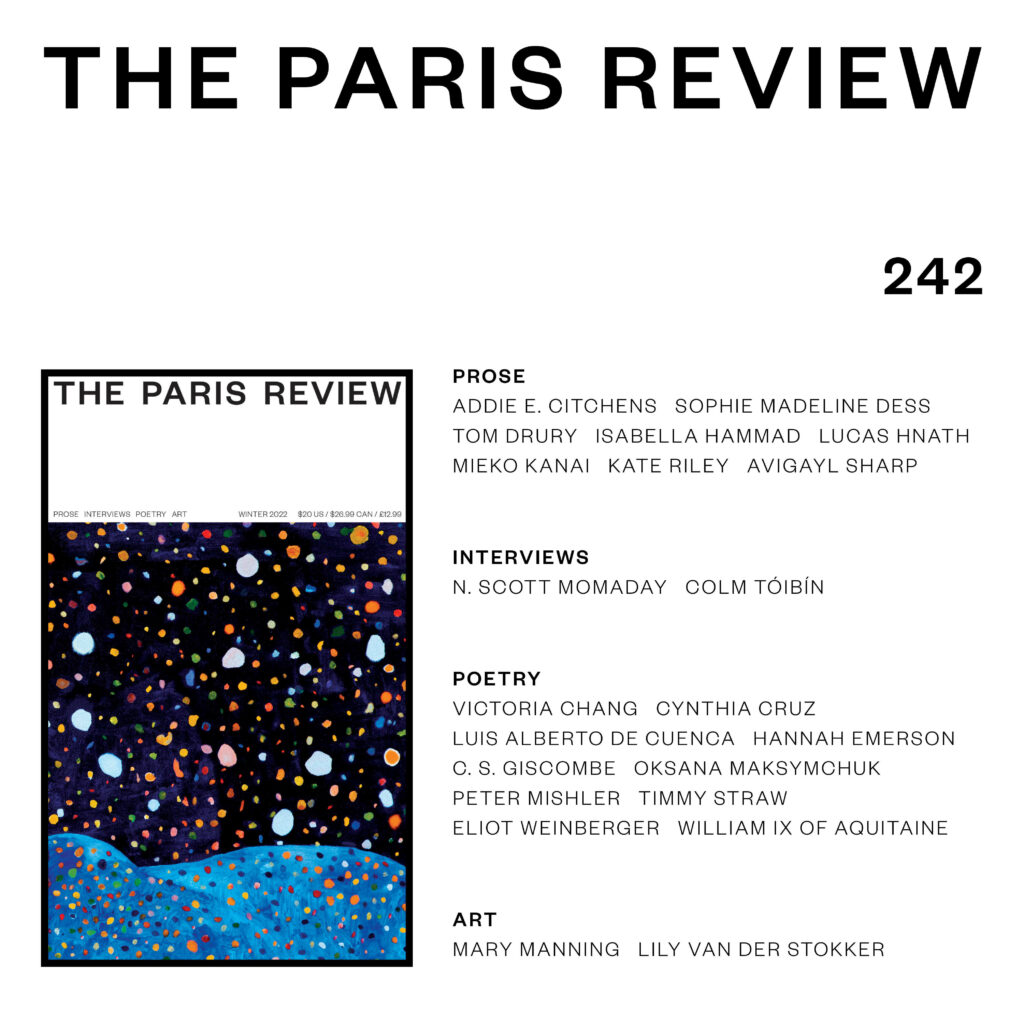
Friends sometimes ask me why I still bother going to the theater. It’s a fair question. Most of the time, I’ll mention a play only to complain about it at length—the pretentious set design, the hammy performances, the man in the audience who laughed very loudly to show that he’d understood the joke. Does any other art form have such a low hit rate? Yet I persist, because of the few plays that manage, in some way, to alter me—and on those rare occasions when they do, the years of disappointment only heighten my elation.
Our new Winter issue is not actually devoted to the theater, but several of the pieces we chose do capture the same miraculous thrill I experience when plays go right. There is, for instance, Isabella Hammad’s “Gertrude,” in which a London actor finds herself part of a troupe putting on Hamlet in the West Bank. You’ll also find an excerpt from Old Actress, a new play by Lucas Hnath. It’s set in the living room of a woman who is struggling to memorize her lines for a production of a play called Death Tax (also by Hnath) and who has enlisted a younger and far less successful actor to help her learn them. On the page, the script’s dialogue looks worryingly avant-garde—the punctuation and spacing are a copyeditor’s nightmare. But read aloud—my deputy, Lidija, and I tried it, surreptitiously, in my office—it is almost eerily naturalistic, such that you wonder why some playwrights pretend people speak in perfect paragraphs.
As Colm Tóibín tells Belinda McKeon in a new Art of Fiction interview—in which he also discusses the uses of trauma and his hatred of the pluperfect—writing a first draft can feel as alarming and adrenalized as any live performance. In preparing to write the part of Nora Webster in which Nora thinks she’s seen her dead husband, Tóibín spent several days alone at his County Wexford home, reading other works in which ghosts appear. Then, one morning, he got up early and put Beethoven’s Archduke Trio on repeat. “I knew it could only be written in one go,” he says. “I had to get every moment of it down as though it were happening in real time.”
Reading certain short stories can feel like watching a dangerous solo sport; I’m drawn to the ones that stay on course even as they remind me how easy it would be to crash that Alpine A522. So it is with Sophie Madeline Dess’s troubling “Zalmanovs”; Addie E. Citchens’s brilliant, unruly “A Good Samaritan”; and Avigayl Sharp’s “Uncontrollable, Irrelevant,” a bravura portrait of frenetic self-absorption.
Also in this issue: an Art of Poetry interview with N. Scott Momaday, our 2021 Hadada Award winner; portfolios by Lily van der Stokker and Mary Manning; and poems—selected by our new poetry editor, Srikanth “Chicu” Reddy—by C. S. Giscombe, Timmy Straw, Cynthia Cruz, and Victoria Chang. What’s nice about reading is that you don’t need a ticket, you can do it in bed, and there are no shoddy performances. As Jung once said, in the theater of dreams, the dreamer plays every role.
from The Paris Review https://ift.tt/fParCRl
Comments
Post a Comment